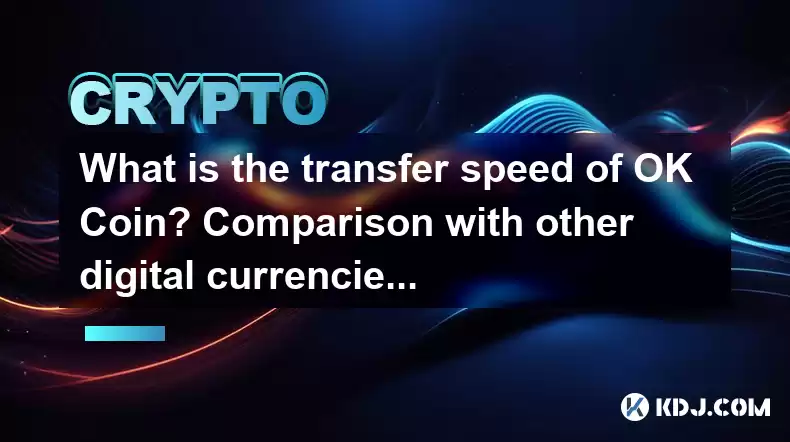-
 Bitcoin
Bitcoin $118800
-0.43% -
 Ethereum
Ethereum $4231
-0.53% -
 XRP
XRP $3.140
-1.41% -
 Tether USDt
Tether USDt $1.000
-0.02% -
 BNB
BNB $808.5
0.57% -
 Solana
Solana $175.1
-4.38% -
 USDC
USDC $0.9999
0.01% -
 Dogecoin
Dogecoin $0.2229
-4.71% -
 TRON
TRON $0.3458
2.18% -
 Cardano
Cardano $0.7744
-3.43% -
 Hyperliquid
Hyperliquid $43.19
-4.44% -
 Chainlink
Chainlink $21.19
-4.12% -
 Stellar
Stellar $0.4313
-2.84% -
 Sui
Sui $3.659
-5.59% -
 Bitcoin Cash
Bitcoin Cash $580.1
1.65% -
 Hedera
Hedera $0.2472
-4.61% -
 Ethena USDe
Ethena USDe $1.001
-0.03% -
 Avalanche
Avalanche $22.88
-3.98% -
 Litecoin
Litecoin $120.5
-2.63% -
 Toncoin
Toncoin $3.375
0.74% -
 UNUS SED LEO
UNUS SED LEO $8.984
-1.31% -
 Shiba Inu
Shiba Inu $0.00001296
-4.28% -
 Uniswap
Uniswap $11.06
1.08% -
 Polkadot
Polkadot $3.869
-4.65% -
 Cronos
Cronos $0.1664
1.09% -
 Dai
Dai $1.000
0.00% -
 Ethena
Ethena $0.7979
0.07% -
 Bitget Token
Bitget Token $4.395
-1.14% -
 Monero
Monero $268.2
-0.19% -
 Pepe
Pepe $0.00001125
-6.91%
What is the transfer speed of OK Coin? Comparison with other digital currencies
OKCoin's transaction speeds vary greatly depending on the cryptocurrency, network congestion, and transaction type; while generally comparable to other major exchanges, speeds can be slower during peak times, especially compared to some DEXs.
Mar 11, 2025 at 11:30 pm

Key Points:
- OKCoin's transaction speeds vary depending on network congestion and the specific cryptocurrency being traded. It's not a single, fixed speed.
- Speeds are generally comparable to other major centralized exchanges but can be slower than some decentralized exchanges, particularly during peak times.
- Factors influencing transfer speed include network fees, block times, and the chosen cryptocurrency's protocol.
- Comparing OKCoin's speed requires considering the specific cryptocurrency and comparing it against the speeds of other exchanges offering that same cryptocurrency.
What is the transfer speed of OK Coin? Comparison with other digital currencies
OKCoin, like other cryptocurrency exchanges, doesn't have a single, universally applicable transfer speed. The time it takes to transfer cryptocurrencies on OKCoin depends on several interacting factors. The most significant is the specific cryptocurrency involved. Bitcoin (BTC), for instance, has inherently slower transaction speeds than faster cryptocurrencies like Solana (SOL) or XRP due to its block time and transaction confirmation mechanisms.
Network congestion also plays a crucial role. During periods of high trading volume, transaction processing times on any exchange, including OKCoin, will inevitably increase. This is because the network is processing more transactions simultaneously, leading to delays. Conversely, during less busy periods, transfer speeds tend to be faster.
The type of transaction also matters. Internal transfers within the OKCoin platform are usually much faster than withdrawals to an external wallet. Internal transfers leverage the exchange's internal systems, bypassing the complexities of the underlying blockchain network. External withdrawals, however, require broadcasting the transaction to the relevant blockchain, subject to its inherent processing speeds and network congestion.
The fees associated with the transaction can indirectly impact speed. Higher fees often incentivize miners or validators to prioritize your transaction, potentially leading to faster confirmation times. However, this is not guaranteed and varies across different blockchains.
Comparing OKCoin's transfer speed to other exchanges requires careful consideration of the cryptocurrency in question. Direct comparisons are only valid when using the same cryptocurrency on different platforms. For example, you can compare the withdrawal speed of Bitcoin from OKCoin to its withdrawal speed from Coinbase or Binance. However, comparing Bitcoin's speed on OKCoin to the speed of Litecoin on Binance is not a meaningful comparison.
Let's consider some examples. Bitcoin transactions on OKCoin typically take several minutes to several hours for confirmation, depending on network congestion and the chosen fee. This is similar to other major centralized exchanges like Coinbase and Binance. However, decentralized exchanges (DEXs) offering Bitcoin might offer faster speeds during less congested periods, but these can be less secure and less regulated.
Ethereum (ETH) transactions on OKCoin will be subject to Ethereum's network congestion, potentially leading to longer processing times compared to cryptocurrencies with faster block times. This is consistent across most exchanges that support Ethereum. Faster cryptocurrencies like Ripple (XRP) or Stellar (XLM), on the other hand, typically boast significantly quicker transaction times on OKCoin and other platforms due to their network design.
The specifics of OKCoin's internal processes also contribute to overall speed. Their system architecture, order processing capabilities, and security protocols all play a role in how quickly transactions are handled. While these are not publicly detailed, they are optimized to handle a high volume of transactions. However, unexpected spikes in traffic can still impact performance.
One can indirectly gauge OKCoin's speed through user reviews and online forums. While not scientifically precise, these sources often provide anecdotal evidence of transaction speeds during specific periods. Remember to filter these accounts, as individual experiences can be heavily influenced by network conditions and user-specific factors.
Ultimately, OKCoin's transfer speed isn't a static number. It's a dynamic value influenced by numerous factors. Understanding these factors is crucial for managing expectations when using the platform.
Frequently Asked Questions:
Q: Is OKCoin faster than Binance or Coinbase?
A: There's no definitive answer. The speed comparison depends on the specific cryptocurrency and the prevailing network conditions on all three exchanges at any given time. All three are major centralized exchanges and generally offer comparable speeds for popular cryptocurrencies, although minor variations are common.
Q: How can I improve the transfer speed on OKCoin?
A: Increasing the transaction fee (where applicable) can incentivize faster processing. Choosing cryptocurrencies with faster block times (like XRP or Solana) will also lead to quicker transactions. Avoid transferring during periods of high network congestion if possible.
Q: What happens if my OKCoin transfer is delayed?
A: Delays are usually due to network congestion. You can monitor the transaction status within your OKCoin account and contact their customer support if the delay is unusually long or if you suspect a problem.
Q: Are OKCoin's transfer speeds consistent?
A: No, they are not. Speed varies significantly based on network congestion, the cryptocurrency used, and the type of transaction (internal vs. external).
Q: How does OKCoin's speed compare to decentralized exchanges (DEXs)?
A: DEXs often boast faster transaction speeds, especially for less congested cryptocurrencies. However, DEXs can be more complex to use and may present higher security risks compared to centralized exchanges like OKCoin.
Disclaimer:info@kdj.com
The information provided is not trading advice. kdj.com does not assume any responsibility for any investments made based on the information provided in this article. Cryptocurrencies are highly volatile and it is highly recommended that you invest with caution after thorough research!
If you believe that the content used on this website infringes your copyright, please contact us immediately (info@kdj.com) and we will delete it promptly.
- Dogecoin's Wild Ride: Big Holders, Price Push, and What's Next for the Meme Coin
- 2025-08-12 08:30:12
- Bitcoin to $133,000? Here's What the Experts Are Saying
- 2025-08-12 08:30:12
- Dogecoin, Meme Coins, and Whale Buys: What's the Hype?
- 2025-08-12 06:50:12
- Bitcoin, Ethereum, and the Pump-and-Dump Merry-Go-Round: A New Yorker's Take
- 2025-08-12 07:10:12
- MAGACOIN Mania: Why Holders Are Staking Their Claim in This Bull Season
- 2025-08-12 06:30:13
- Heritage Distilling's Bold Bet: A $360M IP Treasury Powered by Story Protocol
- 2025-08-12 06:30:13
Related knowledge

How to purchase Aragon (ANT)?
Aug 09,2025 at 11:56pm
Understanding Aragon (ANT) and Its PurposeAragon (ANT) is a decentralized governance token that powers the Aragon Network, a platform built on the Eth...

Where to trade Band Protocol (BAND)?
Aug 10,2025 at 11:36pm
Understanding the Role of Private Keys in Cryptocurrency WalletsIn the world of cryptocurrency, a private key is one of the most critical components o...

What is the most secure way to buy Ocean Protocol (OCEAN)?
Aug 10,2025 at 01:01pm
Understanding Ocean Protocol (OCEAN) and Its EcosystemOcean Protocol (OCEAN) is a decentralized data exchange platform built on blockchain technology,...

Where can I buy UMA (UMA)?
Aug 07,2025 at 06:42pm
Understanding UMA and Its Role in Decentralized FinanceUMA (Universal Market Access) is an Ethereum-based decentralized finance (DeFi) protocol design...

How to buy Storj (STORJ) tokens?
Aug 09,2025 at 07:28am
Understanding Storj (STORJ) and Its Role in Decentralized StorageStorj is a decentralized cloud storage platform that leverages blockchain technology ...

Where to find the best price for Audius (AUDIO)?
Aug 11,2025 at 04:01pm
Understanding the Basics of Ethereum StakingEthereum staking refers to the process of locking up ETH tokens to support the security and operations of ...

How to purchase Aragon (ANT)?
Aug 09,2025 at 11:56pm
Understanding Aragon (ANT) and Its PurposeAragon (ANT) is a decentralized governance token that powers the Aragon Network, a platform built on the Eth...

Where to trade Band Protocol (BAND)?
Aug 10,2025 at 11:36pm
Understanding the Role of Private Keys in Cryptocurrency WalletsIn the world of cryptocurrency, a private key is one of the most critical components o...

What is the most secure way to buy Ocean Protocol (OCEAN)?
Aug 10,2025 at 01:01pm
Understanding Ocean Protocol (OCEAN) and Its EcosystemOcean Protocol (OCEAN) is a decentralized data exchange platform built on blockchain technology,...

Where can I buy UMA (UMA)?
Aug 07,2025 at 06:42pm
Understanding UMA and Its Role in Decentralized FinanceUMA (Universal Market Access) is an Ethereum-based decentralized finance (DeFi) protocol design...

How to buy Storj (STORJ) tokens?
Aug 09,2025 at 07:28am
Understanding Storj (STORJ) and Its Role in Decentralized StorageStorj is a decentralized cloud storage platform that leverages blockchain technology ...

Where to find the best price for Audius (AUDIO)?
Aug 11,2025 at 04:01pm
Understanding the Basics of Ethereum StakingEthereum staking refers to the process of locking up ETH tokens to support the security and operations of ...
See all articles

























































































